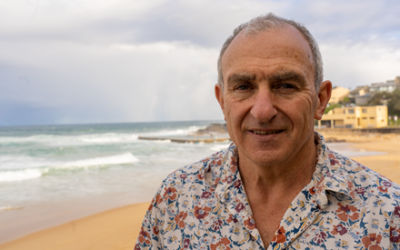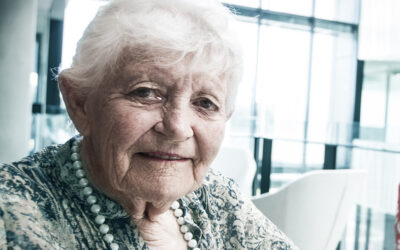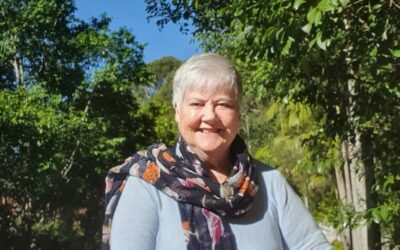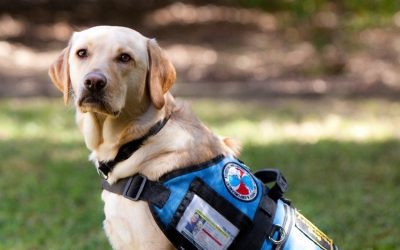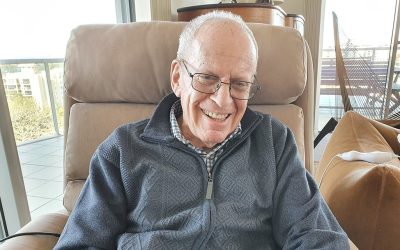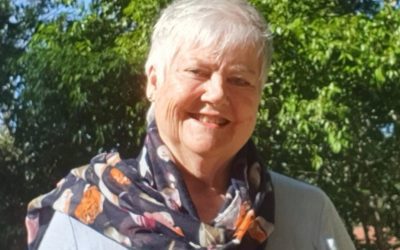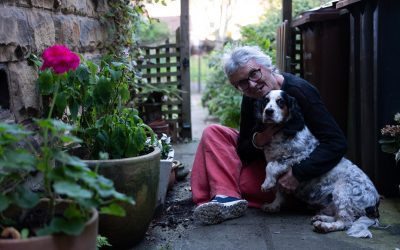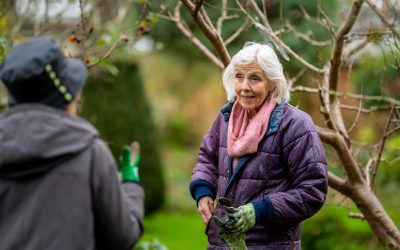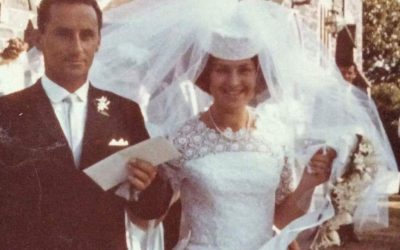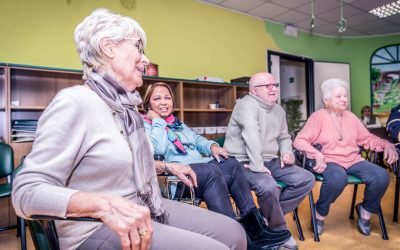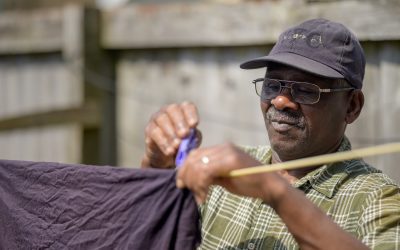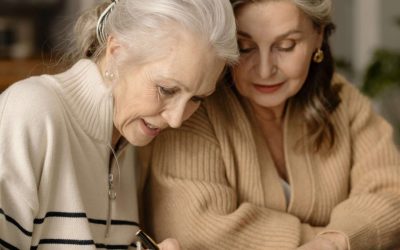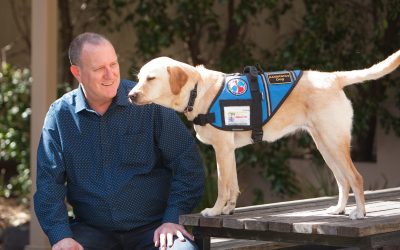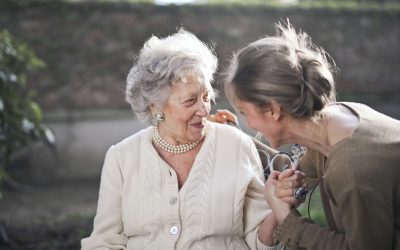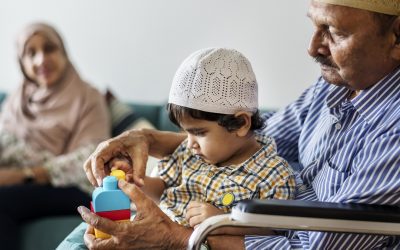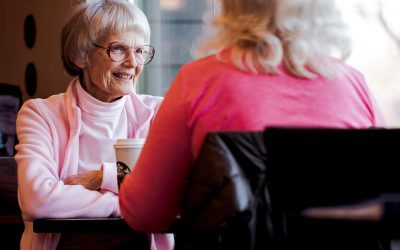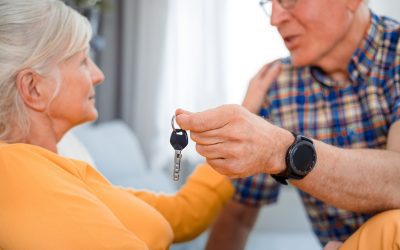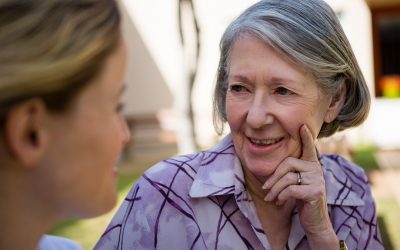Stories
Learn from the experience of others…
Becoming a dementia advocate – Bill Yeates
By sharing our experiences and our stories we help to reduce dementia-related stigma, and we help to inform and empower others.
Carer turned dementia advocate – Val Fell
Val continues to lead a local carers support group and is greatly valued for her empathy, willingness to help, and expert knowledge of the aged care system.
Becoming a dementia advocate – Bobby Redman
I encourage others living with dementia, or caring for someone with dementia to consider becoming an advocate and undertake Dementia Advocate Training through Dementia Australia.
Phil’s story: support of a highly trained assistance dog
Pets as therapy and assistance animals for people living with dementia.
Parkinson’s disease and related dementias
Read George’s story about his symptoms and diagnosis of Parkinson’s dementia, and how he’s managed to move forward despite a major set-back and time in hospital
Rare Disease Day: Frontotemporal Dementia
Dennis Frost felt relieved when he finally received his diagnosis of frontotemporal dementia.
Tam’s story: support and education in the Vietnamese community.
I care for my parents-in-law who live with us. This is a very important duty as my husband’s...
Hello! Socially reconnecting after diagnosis
Bill describes how the simple act of saying ‘hello’ helped his confidence to socially reconnect after a diagnosis of young onset dementia.
Bobby’s story: adjusting, accepting, and succeeding
Everything I found challenging I looked at and found a way to work around it
Anne’s story: sharing the diagnosis and a love of dogs!
So often our pets help us to cope better, they are great company, their love is unconditional, and they have a sense of when to be relaxed!
Sharing Mum’s dementia diagnosis
It was important to talk to her friends and acquaintances, explain the changes in behaviour, and ask them to continue to be her friends.
Cheryl’s story: our dementia diagnosis experience
Cheryl found it hard to hear anything after the diagnosis, so her advice is to ask your doctor for written information. That way you can look at it and digest it after you get over the shock.
Cheryl’s story: services and support experience
There is help out there, but you have to ask.
Michael’s story: a positive approach to living alone with dementia
Living alone doesn’t equate to being lonely! Michael is optimistic and hopes his ideas and experiences will help others.
Kerrie’s story: becoming the organiser to help with Maeve’s dementia
The dementia diagnosis was a shock to them both. Maeve and Kerrie talked at length about their future and the best way forward.
Phil’s story: from dismal diagnosis to dementia advocate
Phil’s optimistic manner and persistent effort to remain independent have helped him lead a busy, positive life.
Phil Hazel’s story: decision about driving
It was a tough decision, but Phil felt he couldn’t put other people at risk by continuing to drive.
Rosa and Arnaldo’s story: travelling after a dementia diagnosis
Rosa was pleased that despite Arnaldo’s dementia diagnosis, they were still able to go on their trip.
The joys and challenges of caring across the sea
Although it was not easy, I’m grateful I had that time with my Mum when she probably needed me most.
Emira’s story: support from family and the Turkish community
The last few years have been difficult, but every day I give thanks for my children and their help
Betty’s story: help to stay independent at home
Betty reclaimed control over her future with family understanding and support services.
Jean’s story: managing emotions after a dementia diagnosis
I remember feeling like our lives had ended.
Colin’s story: education, social support and self-care for carers
It’s important to keep going with your own personal interests and skills. It helps you to stay confident.
Brian’s story: diagnosis and giving up driving
I can’t say it was easy to stop driving, but it was my decision.
Carol’s story: when caring for the carer is important
No one thought to consider how Carol was feeling or about how her life would be changed by the diagnosis.
Heather’s story: moving forward without confrontation
Tips from an experienced carer on reducing anxiety and confrontation.



